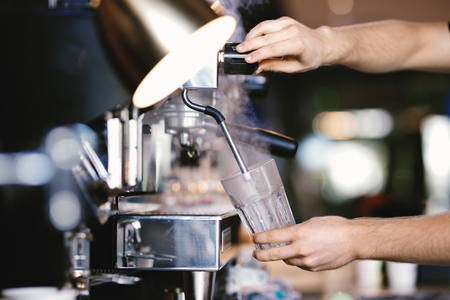Introduction to Sustainable Home Brewing
The UK’s coffee culture has evolved rapidly in recent years, with home brewing gaining immense popularity among enthusiasts seeking both quality and convenience. However, as the number of home brewers grows, so does the environmental impact associated with single-use plastics, disposable filters, and excessive packaging. Sustainability within the UK coffee scene is no longer a niche concern; it’s an essential part of responsible consumption. Making eco-conscious choices at home—such as selecting reusable equipment, minimising waste, and supporting ethical coffee producers—not only reduces our carbon footprint but also aligns with broader efforts to protect our environment for future generations. By embracing sustainable practices in our daily brewing routines, we contribute positively to both local communities and the global coffee industry.
2. Mindful Sourcing and Choosing Local Coffee
Building a sustainable home brewing routine begins with the coffee you choose to brew. Mindful sourcing plays a pivotal role in reducing your environmental impact, supporting local communities, and ensuring that your morning cup is as ethical as it is enjoyable. In the UK, coffee lovers are increasingly aware of the importance of not only what they drink but how it arrives in their cup.
Ethically Sourced Coffee: What to Look For
When sourcing coffee, look for beans that are ethically produced, which means farmers are paid fairly and environmentally sound practices are followed. Certifications help guide your choices, but understanding their meaning is crucial:
| Certification | What It Means | Why It Matters in the UK |
|---|---|---|
| Fairtrade | Ensures fair wages and safe working conditions for farmers. | Supports global justice and aligns with British values of fairness. |
| Rainforest Alliance | Promotes biodiversity and sustainable farming methods. | Protects natural habitats and wildlife, resonating with UK’s environmental ethos. |
| Organic | No synthetic chemicals used; focuses on soil health. | Coffee free from pesticides appeals to health-conscious Brits. |
Championing Local UK Roasters
The UK boasts a vibrant community of independent coffee roasters who focus on quality, traceability, and sustainability. By choosing locally roasted beans, you reduce the carbon footprint associated with international shipping and packaging. Additionally, supporting local businesses keeps money within your community, fostering economic resilience.
Tips for Finding Your Local Roaster:
- Visit local farmer’s markets or speciality food fairs across the country—from London Borough Market to Glasgow’s The Good Food Market.
- Look for subscription services that prioritise UK-roasted coffees.
- Ask about roast dates and sourcing transparency—freshness matters both for flavour and sustainability.
Sustainable Packaging Considerations
Select roasters offering recyclable or compostable packaging. Many UK-based roasters have adopted these eco-friendly materials, further reducing single-use plastics in your brewing routine.
The Bottom Line: Informed Choices Brew Better Habits
Sourcing ethically produced, locally roasted coffee ensures every cup supports sustainable practices. By understanding certifications and backing British roasters committed to responsible sourcing and minimal packaging, you’re taking a significant step towards a greener home brewing routine—one that minimises waste while celebrating UK coffee culture at its best.

3. Essential Reusable Brewing Equipment
Transitioning towards a more sustainable home brewing routine hinges on the careful selection of durable, reusable equipment. By investing in quality tools, not only do you reduce your reliance on single-use plastics, but you also create a more consistent and enjoyable brewing experience. Below is guidance on choosing essential items that support both sustainability and precision in your coffee preparation.
Scales: Accuracy with Longevity
A reliable digital scale is indispensable for any home brewer keen on minimising waste. Opt for a model with a robust stainless-steel platform and replaceable batteries, which are preferable to disposable alternatives. Accurate dosing not only elevates cup quality but also ensures you use just the right amount of coffee and water, preventing unnecessary wastage over time.
Brewers and Filters: Reusability over Disposability
When it comes to brewers, French presses, AeroPress with metal filters, or pour-over cones made from glass or ceramic are excellent choices for longevity. For filtering, swap out paper filters—which contribute significantly to daily waste—for stainless steel or cloth alternatives. These reusable options can be easily rinsed and reused countless times, slashing single-use plastic and paper consumption.
Kettles and Storage Solutions
Choose kettles crafted from stainless steel or glass rather than plastic. For coffee storage, airtight tins or jars made from metal or glass preserve freshness without relying on disposable packaging. Not only does this reduce your environmental footprint, but it also upholds the integrity of your beans by protecting them from air and moisture.
Cups and Cleaning Tools
Invest in sturdy ceramic mugs or double-walled glasses instead of single-use cups. For cleaning, microfibre cloths or natural-fibre brushes are reusable options that help maintain equipment without adding to landfill waste. Avoid plastic sponges which degrade quickly and contribute to microplastic pollution.
By thoughtfully selecting each piece of brewing kit with durability and reusability in mind, you lay the foundation for an eco-friendly home coffee ritual that aligns with UK sustainability values—minimising waste without compromising on flavour or enjoyment.
4. Reducing Waste Throughout the Brewing Process
Embracing a sustainable approach to home coffee brewing means scrutinising each step of the process for opportunities to minimise waste. From sourcing your beans to disposing of spent grounds, small changes can add up to a significant reduction in environmental impact. Below, you’ll find practical and actionable tips tailored for UK households keen on making their daily brew greener.
Buy in Bulk and Choose Refill Options
One of the simplest ways to cut down on packaging waste is by purchasing coffee beans or grounds in larger quantities, ideally from local roasteries or zero-waste shops that offer refill schemes. This not only reduces the number of single-use bags entering your home but often ensures fresher coffee and supports local businesses.
Comparison: Packaging Waste Reduction
| Buying Method | Average Packaging Waste per Month (g) | Notes |
|---|---|---|
| Standard Supermarket Bags (250g x 4) | 60g | Multiple small bags, hard-to-recycle materials |
| Bulk Purchase (1kg bag) | 15g | Fewer, larger bags; some recyclable options available |
| Zero-Waste Refill Schemes | <5g | No new packaging required; containers reused indefinitely |
Composting Coffee Grounds
Spent coffee grounds are rich in nitrogen and make an excellent addition to a compost heap or council food waste bin. If you have a garden, simply sprinkle used grounds around acid-loving plants or mix them into your compost pile. For those without outdoor space, many community gardens or allotments in the UK welcome donations of organic material.
Upcycling Coffee Packaging and By-products
Coffee packaging—especially those made from foil or paper—can be creatively repurposed rather than discarded. Consider using empty bags as plant pot liners, storage for small household items, or even as DIY gift wrap. Used coffee grounds also have secondary uses: they can be employed as natural odour absorbers for your fridge, gentle exfoliants for homemade scrubs, or even as cleaning scourers for pots and pans.
Quick Tips for Upcycling and Composting
- Coffee Filters: Unbleached paper filters are compostable; rinse out any synthetic ones for recycling if possible.
- Brew Equipment: Invest in reusable metal filters or cloth alternatives instead of single-use paper versions.
- Coffee Pods: Seek out brands with UK-based recycling schemes, or switch to pod-free brewing methods like French press or AeroPress.
By integrating these mindful practices into your brewing routine, you’ll not only reduce household waste but also contribute to a more circular economy within your local community—a win-win for both your cup and the environment.
5. Embracing Minimalism and Daily Habits
Adopting a minimalist approach in your home brewing routine can be transformative, both for the quality of your coffee and the impact you have on the environment. By prioritising the essentials and eliminating unnecessary gadgets or disposables, you not only create a more streamlined and enjoyable brewing process but also contribute to reducing waste. Start by assessing which tools are truly vital—perhaps a reliable hand grinder, a reusable filter, and your favourite mug are all you need for a satisfying brew. Opting for high-quality, durable equipment over single-use plastics is a cornerstone of sustainability, and British brands increasingly offer innovative solutions tailored to eco-conscious consumers.
Streamlining your daily habits can make sustainability second nature. For example, measure out just the right amount of coffee beans each morning to avoid waste, and store them in airtight, reusable containers to preserve freshness. Rather than reaching for paper towels or disposable wipes, keep a dedicated cloth nearby for spills or clean-up. When discarding spent grounds, consider composting—a habit that aligns perfectly with many UK councils green waste initiatives and offers an easy way to give back to the earth.
Simplicity extends beyond equipment: cultivate rituals that reduce resource consumption. Heat only as much water as you require using a kettle with clear markings; this not only saves energy but also helps lower household bills—a practical consideration in any British home. Take time to rinse reusable filters immediately after use, preventing build-up and ensuring longevity without harsh chemicals. These mindful practices form the backbone of an everyday sustainable routine.
Finally, remember that minimalism isn’t about deprivation—it’s about making conscious choices that reflect your values. By embracing less-is-more principles and weaving sustainability into daily habits, you’ll find greater satisfaction in every cup while setting a positive example within your community. The journey towards a greener home brew is incremental; every small step counts towards fostering lasting change.
6. Community Engagement and Sharing Sustainable Practices
Building a sustainable home brewing routine goes far beyond individual action; it thrives when shared within the community. In the UK, there is a growing movement towards collective environmental responsibility, and coffee lovers can play a pivotal role in inspiring change. Getting involved in local groups—such as zero-waste initiatives, environmental meet-ups, or even community-run cafés—can foster valuable knowledge exchanges about minimising waste and reducing single-use plastics in home brewing.
Inspiring Others through Local Connections
Engage with neighbourhood initiatives that champion sustainability, whether it’s participating in a coffee grounds recycling scheme or attending workshops on eco-friendly brewing techniques. By sharing your experiences and tips for reusing packaging or sourcing sustainable beans, you can spark enthusiasm and practical changes among fellow enthusiasts.
Leveraging Online Forums and Social Platforms
The digital landscape offers fertile ground for spreading sustainable habits. Contribute to UK-based online forums or social media groups dedicated to coffee culture, where discussions about compostable pods, reusable filters, and waste reduction strategies are welcomed. Sharing your journey—including challenges and successes—not only informs others but also builds a sense of camaraderie around responsible consumption.
Championing Change in Your Community
Small steps—like hosting a local tasting event focused on zero-waste brewing or collaborating with neighbours to bulk-buy sustainable supplies—can have a ripple effect. By making sustainability visible and accessible, you inspire others to join the movement. Ultimately, fostering a supportive network ensures that the pursuit of an eco-friendly home brewing routine becomes not just a personal mission but a shared community achievement.


